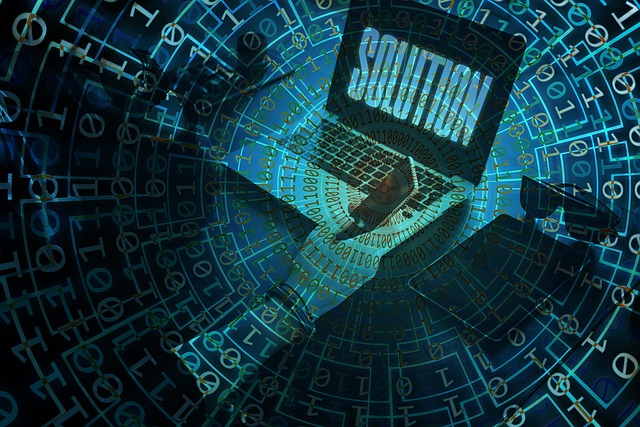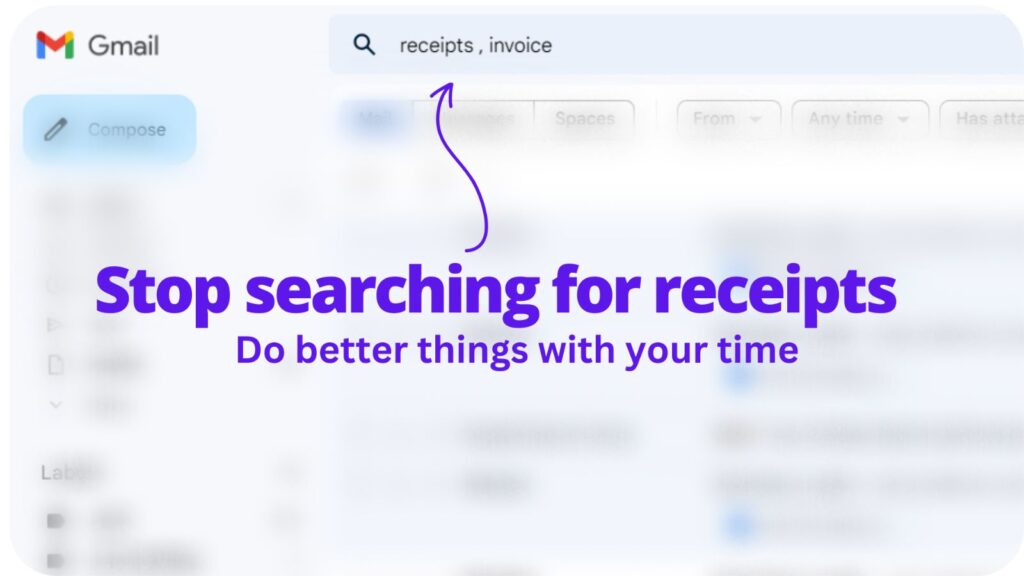Discover why it’s time to break the habit of forwarding receipts to your accountant and explore better alternatives.
In the bustling world of business, it’s common to forward receipts to your accountant as a standard practice. However, what if this routine activity is actually hampering your financial health?
This article unravels the disadvantages of forwarding receipts to your accountant and presents three compelling reasons to reconsider. It’s time to reassess and adopt more efficient strategies to streamline your financial management, contributing to better business performance.
The Traditional Habit of Forwarding Receipts to Accountant
Understanding the Age-Old Practice
Let’s take a step back to understand this traditional habit. In the past, small businesses operated mostly in cash. Customers paid in cash, and business owners used this cash to pay their business expenses.
To track these transactions, business owners would give a note of payment to their accountants. These accountants would then file these notes as records of transactions.
As businesses started to grow, so did the transactions. More customers meant more cash flow and, in turn, more notes to deal with. In time, forwarding receipts to accountants became a widely accepted practice. For many, it was simply the way things were done.
Why Businesses Continue to Forward Receipts
But why do small businesses continue this practice today, even with advances in technology? One reason is familiarity. Small business owners have always been doing it this way. Change can be scary, especially when dealing with important things like business finances.
Another reason is fear of the IRS. Small business owners are always keen on ensuring that everything is well-organized and prepared when it comes to tax season. They want to make sure they have taken care of all the necessary details to avoid any complications.
Furthermore, some believe that forwarding all business expenses to their accountants ensures a thorough review. They hope this will help them prepare a flawless tax return. It seems like a logical idea.
After all, accountants are professionals trained to understand complex financial documents. The more they see, the more they can help, right?
Forwarding Receipts to Accountant: The Underlying Issues

While it may seem simple, forwarding receipts to an accountant has issues.
The Drawbacks of Manual Receipt Forwarding
Firstly, it’s time-consuming. Picture a business owner gathering and mailing all receipts. This takes valuable time. Additionally, it relies on paper. Paper can get lost or damaged, leading to inaccurate expense tracking.
Lastly, this method can cause errors. Mistakes in gathering or reviewing receipts can lead to tax issues and even IRS penalties.
Hidden Costs of This Traditional Method
There are hidden costs too. Mailing receipts costs money. Over time, these costs add up. Also, storing all these paper receipts requires space. Space that a small business might not have. And let’s not forget about missed opportunities. The time spent on this task could be used for business growth instead.
First Reason to Stop Forwarding Receipts to Accountant: Efficiency
The first reason to stop this practice is for efficiency. Efficiency is about doing things better and faster. So, how can a business be more efficient in handling receipts?
Modern Tools for Greater Efficiency
One way is to use modern tools. There are many tools available today that can help. These tools can help the business owner track expenses. They can also help with accounts payable and receivable. Some can even help with taxes.
For example, some tools can scan receipts. This saves a lot of time. The business owner can just take a photo of the receipt. The tool then saves the details. No need to mail anything. Plus, it’s easy to find the receipt later.
Just do a quick search in the tool. This makes it easier to manage the accounts. It’s also easier to prepare for tax time.
Another benefit of these tools is that they can save the documents online. This means no more paper. It’s good for the environment. It also saves space in the office. And, it’s safer. Even if something happens to the office, the records are safe.
Most importantly, these tools can save money. Think about it. Less time spent on receipts means more time for the business. More time to serve clients. More time to grow the business. And let’s not forget the money saved on mailing and storage.
Some tools can be used for converting receipts to Excel, which is useful if you want to organize your expenses in Excel.
So, as we can see, using modern tools can help a business be more efficient. It can save time, money, and space. Plus, it’s safer and better for the environment. This is why efficiency is the first reason to stop forwarding receipts to the accountant.
Second Reason to Stop Forwarding Receipts to Accountant: Accuracy
The second reason to stop sending receipts is accuracy. Accuracy means being correct or exact. When we deal with money, accuracy is key.
The Risk of Human Errors

One problem is human errors. Humans can make mistakes. For example, a person might lose a receipt. Or they might write down the wrong amount. These mistakes can cause problems. They can affect the accounts payable and receivable. They can also make it hard to track income and expenses.
Another problem is time. It takes a lot of time to deal with receipts. The business owner has to collect them, record them, and send them. This is time-consuming. It also takes away from other important tasks. Like serving clients, for example.
Finally, mistakes can cause trouble with taxes. If the IRS finds a mistake, it can lead to fines. This can be costly for the business owner.
How Digital Solutions Can Improve Accuracy
Digital solutions can help. These tools use computers to handle receipts. They can scan receipts and record the details. They can also store the receipts online. This makes it easy to find them later. It also reduces the risk of losing them.
Most importantly, these tools can help improve accuracy. They can record the exact amount from the receipt. They can also add the details to the accounts automatically. This reduces the risk of human errors.
Plus, these tools can help with taxes. They can create reports that the business owner can use. This makes it easier to file taxes. It can also help the business owner spot any mistakes.
Third Reason to Stop Forwarding Receipts to Accountant: Security
Privacy Risks Associated with Paper Receipts
Paper receipts can be a risk. For example, they can get lost. If someone else finds them, they can see your business information. This could include details about your company and how much money you make.
Moreover, paper receipts can be damaged or destroyed. They can get wet, for instance. Or they can fade over time. If this happens, you can lose important documents. This can be a problem at tax time.
So, paper receipts can be a risk. They can lead to lost or stolen information. They can also make it harder to keep track of your accounts. And they can cause problems with your taxes.
Securing Your Financial Information in the Digital Age
Now, let’s talk about a better way. It’s called digital receipts. These are receipts stored on a computer. They offer many benefits.
Firstly, digital receipts are safe. They are stored online. So, they can’t get lost or stolen. They can’t get damaged either. This makes them a secure option.
Secondly, digital receipts are easy to handle. You can search for them quickly. You can also share them securely with your accountant. This can save time and avoid errors.
Lastly, digital receipts are good for taxes. They make it easy to track income and expenses. This can help you prepare for tax time. It can also help you avoid problems with the IRS.
Moving Away From Forwarding Receipts to Accountant: Embracing Digital Solutions

Exploring Digital Receipt Management Systems
A Digital Receipt Management System is a special tool on the computer. It keeps track of all receipts. It’s like a digital shoebox, but better. You can easily find any receipt whenever you need it.
These systems keep your business information safe. They also help you track your income and expenses. So, you can easily balance your accounts and avoid mistakes.
Also, you can share these digital receipts with your accountant. But you don’t need to mail anything. You can do it all on your computer.
Benefits of Going Digital
There are many benefits to going digital. You can easily identify and track every payment. This makes it simple to manage your accounts payable and accounts receivable.
You won’t lose any important documents. This makes it easy to file your taxes. Plus, you won’t need to worry about the IRS. Your records are all safe and easy to find.
Digital solutions can help improve cash flow. You can easily see what’s coming in and what’s going out. This helps you manage your company’s money better.
Using a digital system can save you a lot of time. No more sorting through piles of paper. You can spend that time on other important tasks instead.
Implementation Strategies: Transitioning From Forwarding Receipts to Accountant
Training Staff for a Paperless System
Firstly, you need to teach your employees about digital receipts. They need to know how to use them correctly. This isn’t hard. In fact, most people find digital systems easy to understand. But, it’s still important to do some training.
The training will show your staff how to create, track, and share digital receipts. It will also help them understand why digital receipts are better. They’ll see how they save time and make their jobs easier.
Integrating Digital Solutions into Your Current System
Secondly, you need to fit the digital system into your business. How? By connecting it to your existing accounts and processes. For instance, you can link it to your bank account. Then, it will automatically track payments and invoices. This makes everything quicker and simpler.
Frequently Asked Questions
What tools can I use for digital receipt management?
There are several digital tools available today for managing receipts. These include apps and software that allow you to scan, store, and manage your receipts digitally.
Some popular examples include Quickbooks, Freshbooks, and WellyBox which is also an app on FreshBooks app store and Quickbooks app store. All these tools come with features to aid in accounts payable and accounts receivable, making them handy for a small business owner.
Can digital receipts really help improve accuracy?
Digital receipts eliminate the chances of human error, such as losing a receipt or recording the wrong amount. The details from digital receipts are automatically added to your accounts, reducing discrepancies and improving overall accuracy.
Remember, accurate record keeping is critical in any business to keep a healthy cash flow.
How secure are digital receipts?
Digital receipts are generally more secure than their paper counterparts. They are stored online and therefore can’t be lost or physically stolen. They can’t be damaged by elements like water or fire, making them a safer choice for storing important financial documents.
You should probably choose a tool that takes data security seriously to protect your company’s information.
What if I still prefer forwarding paper receipts to my accountant?
If you’re more comfortable with the old way of forwarding paper receipts to your accountant, that’s okay. However, do consider the benefits of going digital – efficiency, accuracy, and security.
It might be challenging at first, but once you’ve made the transition and see the improvements in your accounts management and cash flow, you might wonder why you didn’t switch sooner.
In the field of accounting even professionals started using ChatGPT in accounting which allows them to access helpful information and assistance for various financial tasks.
Conclusion
Forwarding receipts to your accountant may seem like the traditional way to handle your business finances, but it may not be the best practice in this digital age. It’s high time small business owners reconsider this habit.
Embracing modern tools for managing receipts can lead to increased efficiency, enhanced accuracy, and better security. One of these tools could be an efficient email search feature, where you could simply find receipts in your email to retrieve important financial documents.
Training your staff for a paperless system and integrating these digital solutions into your existing system may seem like a task, but the benefits surely outweigh the effort.
Not only does this mean a greener and more efficient workflow, but it also allows for easy tracking of payments and invoices, making tax time less stressful. It’s a change worth considering for better business financial health.

Collect receipts from your email automatically!
Try WellyBox - your AI assistant for receipts😃
Start for Free
